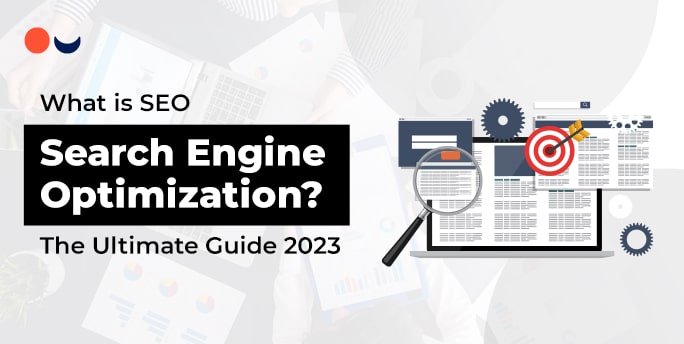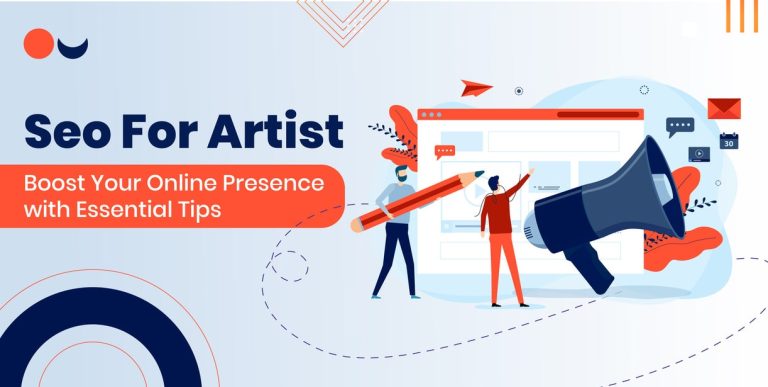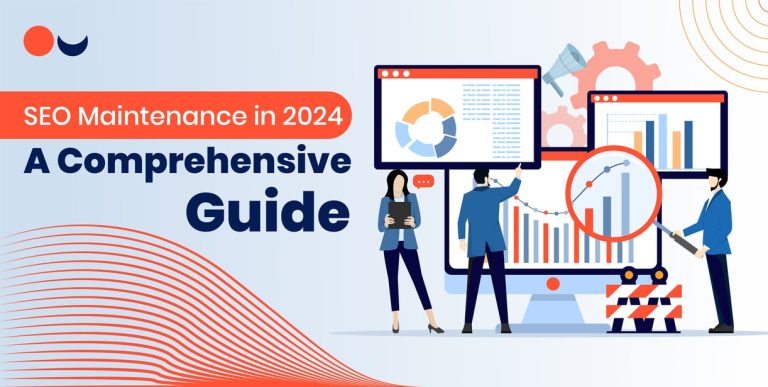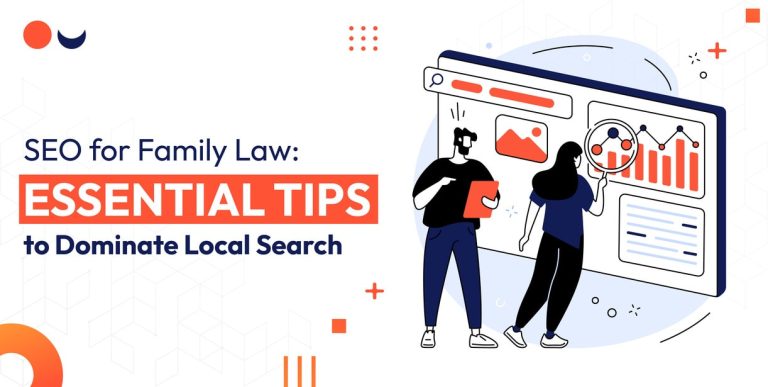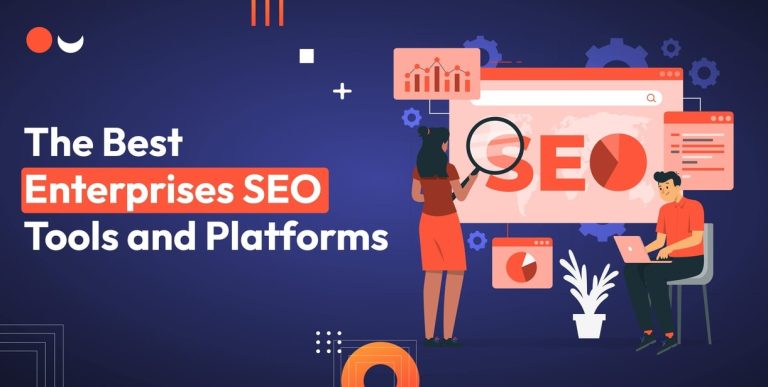Short for “Search Engine Optimization” and generally referred to as SEO, it is one of the key elements of digital marketing. Search engine optimization can be defined as the process enhancing the quality as well as the quantity of a website’s traffic through several distinct strategies targeted towards ranking the website higher on the Google’s first few search pages; increasing the visibility of the website, allowing the users to access it with ease:
- Products you sell
- Services you provide
- Information on topics that reflects your relevant expertise and experience
Your pages are more likely to be seen and clicked-on, the more visible they are on search results. The SEO meaning and its ultimate objective is to attract website visitors and have them converted into paying clients, customers, and a loyal audience.
How is SEO Different From SEM And PPC?
The primary distinction between the two is that Search Engine Optimization (SEO) focuses on optimizing a website to draw traffic from organic SEO search results. On the other hand, Search Engine Marketing’s (SEM) objective is to maximize exposure and traffic from sponsored and organic search.
SEO vs. SEM
SEM or more commonly known as “search marketing”, stands for “search engine marketing”. Digital marketing is inclusive of search marketing as one of its key elements, which happens to be a catch-all phrase for the collection of SEO and PPC efforts designed to increase organic as well as paid search traffic.
Search marketing increases the exposure and traffic through search engines by leveraging paid and unpaid initiatives.
Then how is SEO vs. SEM different? Technically speaking, they are the same thing; SEO is just a portion of SEM:
SEO = driving organic traffic from search engines.
SEM = driving organic and paid traffic from search engines.
Now, this is where things get murky. Many individuals today need clarification on PPC (which we’ll discuss in the next section) and SEM. This notion undermines SEO; but just like PPC, SEO is a form of marketing.
Search Marketing
Search engine marketing is a strategy to increase online visibility and traffic on search engines like Google, Bing, and Yahoo.
Think back to the last time you used a search engine to look something up. Your “search query” is the text you entered into the tiny search box, and it leads you to a page that looks something like the example below. A SERP, or search engine results page, is this page. The higher you rank on SERPs, your website will receive more traffic.
Two basic types of search marketing are:
1. SEO (Search Engine Optimization): Improving one’s position on-page search engine results through natural, unpaid methods like content marketing.
2. PPC (pay-per-click, often paid to advertise): Adding listings to search engines via adverts.
SEO vs. PPC
PPC, or pay-per-click, is a form of online advertising in which advertisers are charged every time one of their adverts gets a click.
Advertisers place bids on particular terms or phrases they want their advertising to appear in search engine results. The advertiser’s ad will appear among the top results when a user searches for one of those terms or phrases.
SEO vs. PPC are two sides of the same coin, with SEO being the unpaid side and PPC being the paid side if we think of search marketing in this way again.
Another crucial issue is that since SEO and PPC complement channels, it’s crucial to avoid thinking of them as “SEO vs PPC”. Never make an either-or decision; always opt for both (as long as your budget allows it).
As we previously indicated, the phrases SEM and PPC are interchangeable in the industry. That’s not the case, though, on Search Engine Land.
Anytime we use the term “SEM,” we’re referring to both SEO (organic search) and PPC (paid search).
SEO and PPC
There are a few key distinctions to consider when deciding how to spend your time and money on online marketing, such as the difference between PPC (pay-per-click) ads and SEO (search engine optimization).
The more relevant your website is to users, the higher it will rank on Google Search. PPC ads, such as Google Ads, are paid online advertisements that let companies and website owners like you bid for the opportunity to display an ad next to searches on Google.
Why is SEO Important?
You may produce and optimize content for the global SEO industry using search engine optimization (SEO). In this manner, foreign visitors can locate your website when they conduct domestic searches, and your material will appear on their search results page, which can raise conversion rates.
Rankings and Publicity
Increasing visibility, or making it simpler for prospects to find you when they search for anything you have to offer, is one of the most crucial Search engine optimization duties. Your rating has a direct impact on your visibility.
It’s important to raise your organic page ranking since the higher you appear on a search engine result page (SERP), the more probable potential customers will see you and click through to your website. Your ranking and visibility will improve the more effective your SEO efforts, which is especially crucial given that a quarter of web users never scroll past the first SERP.
Web Traffic
One of the key objectives of SEO is to increase online traffic, and you can improve traffic by improving visibility and ranks. Think about this moment: going up just one spot in the search results can raise CTR by an astounding 30.8%. The #1 spot on a Google search receives roughly 32% of clicks.
The “Featured Snippet” also known as position #0 as it shows above the top-ranked URL, is the Holy Grail for many marketers. This content, typically extracted from a blog’s landing page and providing a solution to a common query, can significantly increase your organic click-through rates.
Therefore, if you want more people to discover your website through a search engine, you should employ SEO strategies that will place you among the top five spots, ideally at the top.
Authority
Page Authority (PA) is becoming more significant to web users and search engines. In essence, authority denotes that your website is reliable, of a high standard, pertinent, and has something to provide.
The higher your score ranges from 1 to 100, the more authority your site has, while changing your PA rating is challenging, you may find it utilizing tools like Moz. Many SEO professionals think it has to do with your link profile or getting external links from reputable and popular sources.
Creating a Better Visitor Experience
Another reason SEO is essential is that all the effort you spend creating excellent content and optimizing it for search engines on your website makes it more user-friendly. A seamless and satisfying consumer experience is produced as a result.
For instance, if you make your website responsive, both laptop and desktop users and mobile visitors can use it. Similarly, speeding up page loads will lower bounce rates and encourage users to stay on your site longer. Customers anticipate that a website will load as rapidly as possible, with a three-second maximum! The higher the bounce rate and the lower your conversions, the longer it takes for the page to load.
Remember, Search Engines Are Fallible
Search engines aren’t perfect; SEO is crucial. Your website will only improve if you take action to address its flaws.
For instance, improper link structure may prevent search engines from correctly crawling and indexing a site, resulting in worse ranks. No matter how much time you invest in other SEO strategies, coding problems can block search engines, preventing your site from ranking. Other typical issues that search engines may encounter include the following:
- Duplicate pages
- Forms
- Images, flash, audio files, video, and other non-textual content
- Language and Semantics
Types of SEO
There are different types of SEO, here is the list and some basic detail of all the major types of SEO.
- Technical optimization
- Content optimization
- Off site optimization
- SEO Specialties
- E-commerce SEO
- Local SEO
- International SEO
- Enterprise SEO
- Link building SEO
Technical Optimization
The main goal of technical SEO is to make it easier for Google bots to properly crawl, understand, and index every page of your website for future usage. A detailed XML sitemap, mobile-friendliness, and providing structured data to pages to aid web crawlers in sorting and categorizing them according to the type of material they contain are just a few of the tactics used. For additional information, please see our in-depth piece on technical SEO.
Technical SEO is a subset of SEO that focuses on technical element optimization and on-site auditing to boost website performance and SERP rankings. The primary goal of technical SEO is to increase the performance of your website’s functionality and effectiveness. For instance, websites with responsive designs and crawlable architecture frequently receive higher ranks from search engines like Google. Additionally, websites with smooth mobile-friendly web pages are given precedence by search engines. Search engines may even punish your website if it needs better technical SEO.
This on-page SEO involves a lot of different components. For instance, speeding up the website load time by employing a secure HTTPS connection and caching data for any media on your page. Other technical SEO components include adding sitemaps, improving HTML, using Meta tags, using alternative text, and more.
Optimizing the HTML on each page is a crucial component of technical SEO. The search engine algorithms are informed through schema markup exactly what is on your web pages. This makes it simpler for the crawlers to understand your page’s goal, contents, and other things. Similarly, adopting the appropriate redirects for your page might enhance its health.
Content optimization
Content SEO is an additional term on the list of SEO subtypes. Order to organize your website and elevate it in the SERPs refers to producing original material, whether it be writing, pictures, or videos. Copywriting, site structure, and keyword strategy are three factors that need to be considered when dealing with content SEOs. It’s crucial to strike a balance between the three since, without high-quality content, your website will not appear in search results.
Additionally, it’s just as vital to examine the content after publication as it is before. Keep tabs on the effectiveness of your content. Apply various tactics, make the necessary adjustments, and add new products to your website to increase its audience.
Off-site optimization
Off-page SEO is everything you do to promote your website outside Google’s search engine results pages. It entails obtaining quality social media advertising, positive online forum testimonials from clients, and links from reputable websites operating in the same industry as you.
SEO specialties
A search engine optimization specialist, often known as an SEO specialist, evaluates, tests, and modifies websites to make them more search engine friendly. As a result, the websites rank higher in the search results on popular search engines like Google and Bing.
An SEO specialist optimizes a website’s pages to improve user experience, ensure appropriate search results, and increase website traffic, lead volume, and brand awareness. In other words, an SEO specialist is no different from any other traditional or digital marketer in that their main goal is to increase sales for the business they work for.
An SEO specialist may improve a website’s exposure on Google by conducting keyword research and utilizing SEO tools like Google Analytics, which has significant advantages for any business. Some may collaborate with other marketing team members to create new projects or improve social media account management to increase user engagement and traffic.
E-commerce SEO
One of the easiest ways to increase traffic through sponsored search is through e-commerce SEO experts, although SEO expenses are substantially lower. It assists in building your online store website so that it appears higher on search engine results pages.
You must have your website listed in the SERPs to maintain access to qualified and potential e-commerce customers. E-commerce SEO may optimize your website to bring traffic and boost search volumes if the rivals’ research, focus on homepage SEO, and website architecture is done correctly.
Enterprise SEO
This is extremely aggressive SEO. This often entails managing a website (or several websites/brands) with one million or more pages, though it could also depend on the size of the firm (typically those making millions or billions in revenue per year). Doing business ventures also frequently entails the engagement of numerous stakeholders and delays in the dev team attempting to apply SEO adjustments.
International SEO
International SEO aims to optimize your website to get organic traffic from numerous locations and languages. To successfully implement international SEO, you must enable your target audience to make purchases in their respective languages and currencies and speak to them in a manner relevant to their cultural environment. Make careful to format dates and timings correctly for their location if you’re listing them. If they have any worries, talk to them in their language. International SEO guide aims to give your target audience a satisfying online experience.
Local SEO
One of the most crucial types of SEO for local businesses is local SEO strategy, which makes the company more visible in Google’s local search results. By examining the behavior of the local audience through trillions of searches, local SEO aids firms in connecting with them. Your local company can rank higher in the search results and the local map pack at the same time if you employ local SEO techniques. As a result, your business expands, and more people visit your website.
Link building SEO
Creating links to pages on your website is a process known as link building. Its goal is to increase your pages’ “authority” in Google’s eyes so that they rank higher and receive more search traffic.
How Does SEO Work?
SEO, which stands for search engine optimization, is the practice of optimizing a website or web page to increase its visibility and ranking on search engine results pages (SERPs). The goal of SEO is to make it easier for search engines like Google, Bing, and Yahoo to understand the content of a website and rank it higher in relevant search queries.
Affordable SEO services are a cost-effective way for businesses to improve their online presence and increase their search engine rankings. These services typically include keyword research, on-page optimization, link building, and content creation. The key to affordable SEO services is to find a reputable provider who can deliver high-quality results at a reasonable price.
SEO works by using various techniques to improve a website’s relevance and authority in the eyes of search engines. This includes optimizing the website’s content and structure to make it more search engine-friendly, building quality backlinks from other websites, and creating high-quality content that engages and informs the audience.
The ultimate goal of SEO is to rank a website or web page higher on search engine results pages, which can lead to increased traffic, conversions, and revenue for businesses. By leveraging affordable SEO services, businesses can achieve these goals without breaking the bank, making it a valuable investment for any online business.
1. Understanding How Search Engines Work
Simply put, you need to understand the technical procedures that underlie how the engine operates if you want people to find your business via search – on whatever platform – and then make sure you are delivering all the appropriate “signals” to affect that visibility.
There are four distinct stages of the search when referring to conventional web search engines like Google:
- Crawling: Search engines employ crawlers to find pages on the internet by utilizing sitemaps and following links.
- Rendering: Search engines use information from HTML, JavaScript, and CSS to determine how the page will appear.
- Indexing: While there is no guarantee that every page on your website will be indexed, search engines examine the content and metadata of newly discovered pages before adding them to a database.
- Ranking: To assess if a page is relevant and of sufficient quality to show when searchers input a query, complex algorithms examine a range of signals.
However, Google search optimization differs from search optimization for other platforms like YouTube or Amazon.
Take Facebook, for example, where engagement (Likes, comments, shares, etc.) and connections are important aspects. Signals like recency, engagement, or the author’s reputation are significant on Twitter.
Additionally complicating matters, search engines now incorporate machine learning components to surface material, making it much more difficult to determine whether “this” or “that” led to improved or worse performance.
2. Researching
Research is a key part of SEO. Some forms of research that will improve SEO performance include:
Audience analysis
Understanding your target market or audience is crucial. Who are they, according to their demographic and psychographic characteristics? What are the aches and pains? What inquiries do they have that you could respond to?
Keyword research
By using this technique, you may find relevant search terms that people use and include them in your pages while also learning how difficult it is to rank for them.
Competitor analysis
What are your rivals up to? What are their advantages and disadvantages? What kinds of content do they release?
Brand, company, or customer research
What are their objectives, and how might SEO support them?
Research on the website
Several SEO audits might find opportunities and problems on a website that are impeding success in organic search. Technical SEO, content, link profiles and E-A-T audits are a few to consider.
SERP analysis
By understanding the search intent of a specific query (such as whether it is commercial, transactional, informational, or navigational), you may better develop content that will rank or be seen.
3. Planning
Your long-term action approach is your SEO strategy. You must develop goals and a strategy for achieving them.
Consider it a road map for your SEO approach. Your route will probably alter and develop over time, but the final objective should be obvious and unchanging.
Your SEO strategy may contain the following:
- Setting expectations (i.e., timelines/milestones) and goals (e.g., OKRs, SMART).
- Establishing and coordinating accurate KPIs and metrics
- Making decisions about the creation and execution of initiatives (internal, external or a mix).
- Assisting internal and external stakeholders in coordination and communication.
- Selecting and using tools and technologies.
- Forming, hiring, and training a team.
- Establishing a budget.
- Measuring outcomes and reporting them.
- Keeping track of the plan and procedure.
4. Creating and implementing
The time has come to put ideas into practice after the research is complete. This entails:
- Producing fresh material: Advise your content staff on the type of content that should be produced.
- Making suggestions for or implementing improvements to current pages: This may involve updating and upgrading the content, including internal links, keywords, topics, and entities, or finding additional ways to optimize it.
- Eliminating dated or poor-quality content: Content that doesn’t perform well in search engine results doesn’t bring in customers or help you reach your SEO objectives.
5. Monitoring and maintaining
You must be aware of any errors or malfunctions on your website. It’s important to monitor.
You need to be aware of any potential catastrophic events, such as traffic dropping to a crucial page, pages being slow, unresponsive, or dropping out of the index, your entire website going offline, links breaking, etc.
6. Analyzing, assessing, and reporting on performance
You can only make SEO better if you measure it. You’ll judgments following to make data-driven judgements about SEO:
– Website analytics: Create and utilize tools (at the very least, free ones like Google Analytics, Google Search Console, and Bing Webmaster Tools) to gather performance information.
– Platforms and tools: There are numerous “all-in-one” platforms (or suites) that provide various tools, but you can also decide to utilize only a few SEO tools to monitor the success of particular tasks. Alternatively, if you have the means and none of the tools available does exactly what you need, you can create your own.
After gathering the data, you must provide an update on your progress. Reports can be written manually or with the use of the software.
Performance reporting ought to be narrative and conducted at relevant intervals, usually compared to prior report periods (e.g., year over year). Depending on the website type, this (typically, this will be monthly, quarterly, or some other interval),
How To Learn SEO?
How can you learn more now that you know what SEO is and how it operates?
It should become a regular habit for you to read (or, if you prefer, watch or listen to) the most recent SEO news, research, best practices, and other advancements, whether daily, weekly, or monthly. Additionally, invest by going to at least one or two events annually.
Algorithms must regularly adapt to keep up with behaviors’ changing expectations and behavior. That, together with recent technological advancements (look no further than the explosive rise of ChatGPT in late 2022 and the sudden addition of generative AI to search results in 2023).
FAQS
1. What does Search Engine Optimization do?
Searching your website to appear higher on a search engine results page (SERP) to draw in more traffic is known as search engine optimization (SEO). For search terms that are most important to your target audience, it is common to try to rank on the first page of Google results.
2. What is SEO, and how does it work?
The art and science of search engine optimization (SEO) involve raising a page’s position in search engines like Google. Ranking higher in search engines can enhance a website’s traffic because search is one of the primary ways users find material online.
3. How much does SEO cost
Only one pricing model is provided by 54.5% of SEOs (i.e., hourly, retainer, or per-project). The most popular monthly seo cost retainer ranges from $501 to $1,000. The most frequent hourly rate range is $75 to $100. The most typical per-project rate is between $2,501 and $5,000.
4. What are the benefits of SEO for my business?
Three major benefits of SEO are as follows:
- Rise in traffic. A website link is likelier to toward theed if it is toward the top of the search results page.
- Win over the opposition. Online lead generation is significantly aided by SEO.
- Aids in increasing brand awareness.


